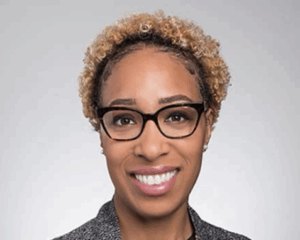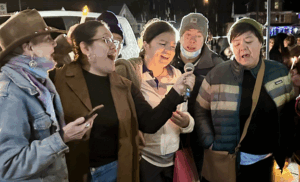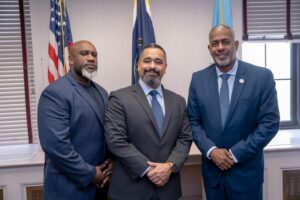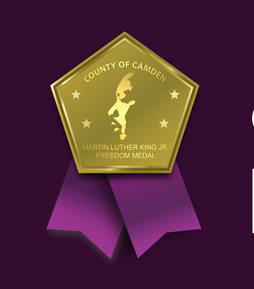Prosecutor Damon Tyner: ‘What’s Going On’ at Intersection of Law and Race
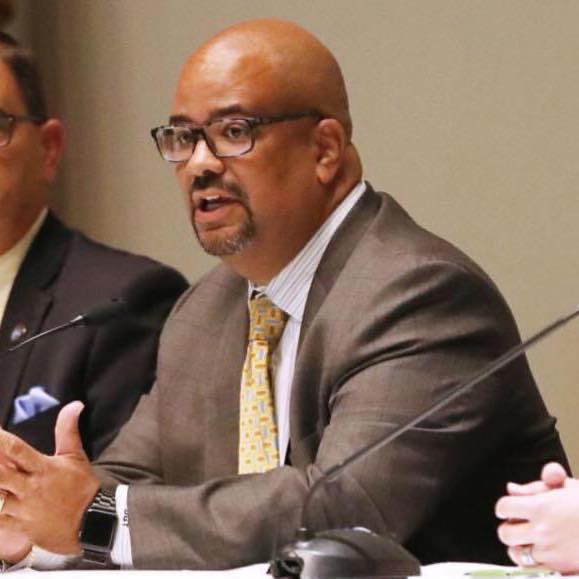
Atlantic County Prosecutor Damon Tyner. Photo courtesy of Atlantic County Prosecutor Facebook.
By Damon G. Tyner | Atlantic County Prosecutor
NOTE: This article first appeared on the Office of Atlantic County Prosecutor website on July 31.
MAYS LANDING — “Mother, mother, there’s too many of you crying. Brother, brother, brother, there’s far too many of you dying.”
“Picket lines, and picket signs . . . don’t punish me with brutality. Talk to me, so you can see, what’s going on, what’s going on . . .”
These prophetic words were first recorded by the late Marvin Gaye in June 1970; ironically, the same month and year I was born. Fifty years later, the circumstances that gave rise to Mr. Gaye’s melodic pleas still exist, and while some progress has been made, leaders such as myself grapple with trying to repair a system that sadly does not always deliver on the promise, “Equal Justice Under the Law.”
Perhaps it was the pandemic which deprived us of society’s distractions, such as sporting events, movies, the theatre, or simply eating a meal in a restaurant, but America awakened from its slumber on May 25, 2020, when George Floyd was murdered in Minneapolis. People were generally outraged that a police officer would cut the air flow off by placing his knee on Mr. Floyd’s neck in an attempt to detain him over a twenty dollar dispute. However, the cracks in our democracy were on vivid display as there were many people who could not (still do not) understand the outrage voiced by the voiceless.
Some ask, “Why do these thugs have to loot and destroy property?” but they fail to ponder, “Why do unarmed Black and Latino people die at the hands of law enforcement at a disproportionate rate than their white counterparts?”
According to a database of police fatalities maintained by The Washington Post since 2015, Blacks and Latinos die at the hands of law enforcement eight times the rate of white people although their combined population is only about twenty percent of the white population. This alarming statistic requires us, as a society, to ask, “What’s going on?”
Over the past three years, I have been asked to speak about race and its tortured relationship to the law on many occasions in different forums. I have been asked in my capacity as a former Superior Court Judge who adjudicated cases in the Criminal Division and Family Division, as the current County Prosecutor (the Chief Law Enforcement Officer of Atlantic County), and particularly as the first person of color to serve in this capacity. I was sworn in as the County Prosecutor in 2017, only 180 years after the first County Prosecutor, named Joseph White, took the oath in 1837.
Although I am very proud of my heritage and my accomplishments, my perspective on this topic may be viewed by some as skewed. After all, my mother’s first husband, Clayton Graham, was the first police officer shot and killed in the line of duty in Atlantic City in 1962. She re-married my father, Hank Tyner, who was a police officer. His brother, Bob Tyner, was a career police officer. The profession continued to run in the family, as one of my brothers is a Criminal Court judge in Indianapolis, while another is a retired DEA agent, and yet another retired from the Atlantic City Police Department.
Quite frankly, as a young Black man growing up, none of that mattered outside of my hometown of Atlantic City. I was given the same talk so many of my peers were given, and the one we now give to our children, on how to interact and speak with a law enforcement officer to ensure that they survive the encounter. Consider that we live in a society where some consider getting out of receiving a traffic ticket during an encounter with police “lucky,” while others consider getting home alive “lucky.”
“Don’t punish me with brutality . . .”
So how do we change the narrative of this tragic story? We have heard calls for “defund the police.” I disagree. We should ensure full funding of education, social services, and law enforcement. Yet others, such as Attorney General William Barr, have suggested that we close our eyes and stick our fingers in our ears because, according to the Attorney General’s testimony before Congress on July 28, 2020, “systemic racism does not exist.” I disagree. As the Chief Law Enforcement Officer of this County, it would not have taken 180 years for someone who looks like me to occupy the office, if systemic racism did not exist. When you consider that in the entire history of the State of New Jersey and all twenty one counties, only three of the sixty-one Attorney Generals have been persons of color (Hon. Peter Harvey, Hon. Paula Dow, and Hon. Gurbir Grewal) and only ten persons of color, including myself, have been confirmed for full terms as county prosecutors.
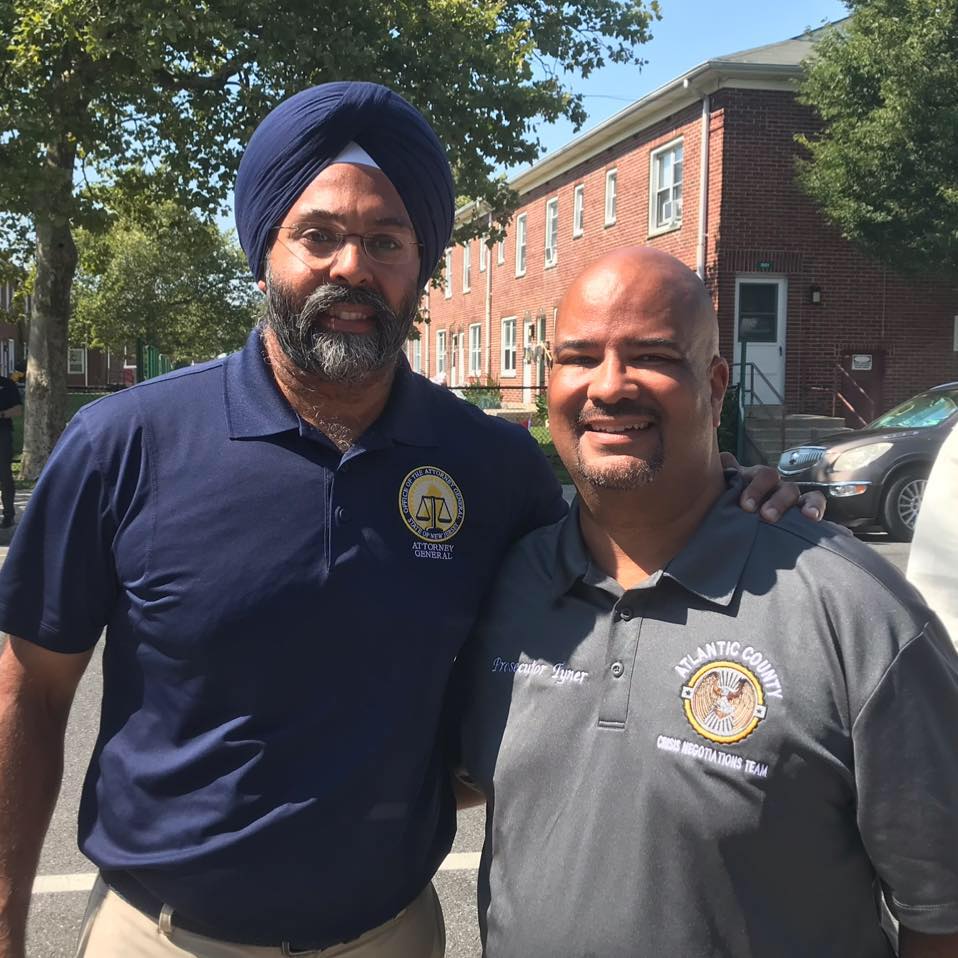
Prosecutor Jennifer Webb-McRae of Cumberland County and I are the only two persons of color to hold our positions in the southern part of the State. In Atlantic County, the only police departments other than Atlantic City Police Department and Pleasantville Police Department to be led by a person of color or a woman has been Mullica Township Police Department and Galloway Township Police Department. Very simply, the system was not created by most of us (i.e., people of color and women) who are now free to fully participate in the delivery of justice.
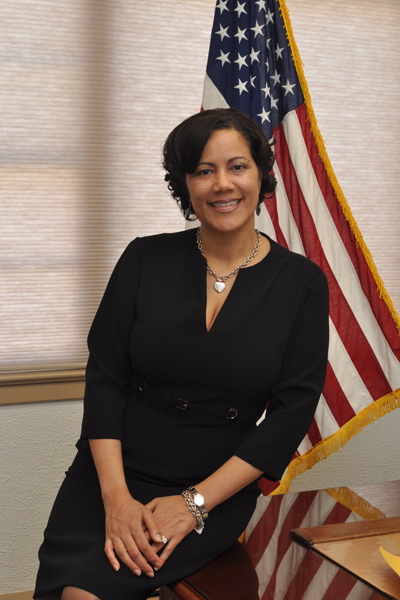
Moving forward, we must change the narrative through training, accountability and transparency. Police officers who have graduated from the academy within the past five years are being asked to do a much different job than their superior officers and those with more experience. In addition to their traditional policing duties, they are being asked to be social workers, drug addiction counselors, mental health advocates, and so much more. Moreover, these troubling issues do not have boundaries and are not limited to Black and Latino communities.
While I am not the arbiter of the “Black” experience, I can speak from my own observations growing up on the Westside of Atlantic City in the 1970s and 80s. For so many years, in my observations and discussions with police officers, they were taught to patrol white communities and “control” Black neighborhoods. This is likely where the disconnect exists. Rather than being lauded for helping Black victims of crime in the Black community, police officers are often perceived by many in that same community as interlopers, who are there to merely harass residents by arresting them for petty offenses. So naturally, many Blacks have a negative perception of police officers when the majority of their interactions are as a result of negative encounters. Working with the Coalition of Safe Communities throughout various communities, the Atlantic County Prosecutor’s Office, Atlantic City Police Department, Pleasantville Police Department, Galloway Twp. Police Department, and Egg Harbor City Police Department have made great strides connecting with the community.
Certain underrepresented communities have had an opportunity to form solid relationships with police officers under positive circumstances. More importantly, our police officers have had an opportunity to form relationships with different communities and their residents, particularly if they did not grow up in the municipality. This has fostered a level of trust that previously did not readily exist. The Office of the Attorney General has also had numerous listening sessions throughout the State in an effort to break down the barriers between law enforcement and minority communities.
“Talk to me, so you can see, what’s going on, what’s going on . . .”
Many of the reforms and policies that are now in place, such as mandatory implicit bias training and the “Excellence in Policing” initiative are a credit to Attorney General Grewal. Additionally, the Atlantic County Prosecutor’s Office, in conjunction with the Superior Court in Atlantic County, has implemented robust diversionary programs such as Recovery Court and the Veteran’s Diversionary Program. Recently, members of the Atlantic City Police Department were selected to participate in the Attorney General’s pilot Crisis Intervention Training.
These programs require police officers to receive additional training so they can identify members of the community that could benefit from diversion as opposed to incarceration. Lastly, my office is in the process of implementing a county-wide Special Needs Registry which will enable caregivers of residents with special needs, such as autism, mental illness, and dementia — to name a few — the ability to register their loved one with the local law enforcement agency. Therefore, when police officers arrive at a registered address, the responding officers will know how to interact with the person according to their needs.
Holding police officers accountable for bad conduct has been a paramount concern for law enforcement leaders for a long time. Under current Attorney General guidelines, all police discipline must be reported to the County Prosecutor. There is now an early warning system to alert the Chief and the Prosecutor of a police officer who is being disciplined frequently. This enables us, as leaders, to identify an officer and get them the assistance, or additional training, he or she may need to be successful.
After identifying an officer with some issues, we are compelled to get them the counseling that may be necessary under our Resiliency program, or remove them from the job. Gone are the days where an agency would chalk up a wrongdoer’s misconduct as “just a bad apple.” A “bad apple” ruins the entire barrel, and tarnishes the reputation of entire agencies. It is incumbent upon all sworn officers to speak up and intervene in an effort to protect the community from those who abuse the privilege of serving their community as a police officer.
Lastly, law enforcement agencies must do a better job with being more transparent. We are beholden to the public we serve. Upon becoming the County Prosecutor in 2017, one of my first initiatives was to re-vamp the agency’s website and increase our presence on all social media platforms. We became committed to sharing our work with the community at large. Not only do we share our victories, we also acknowledge our shortcomings and pledge to do better. As a result, your participation in helping us solve crimes increased dramatically.
Once again, when the community sees that the employees of the Prosecutor’s Office are their friends, neighbors, parishioners, and kids’ coaches, they can relate and the level of trust is fortified. This work requires our agencies to actively engage with the community so that we can learn how to best serve their needs. To be a successful law enforcement agency in today’s environment, an agency must be committed to adapting and learning about the needs of the communities they are sworn to protect, and it must truly reflect the diversity of the overall community through inclusive hiring practices and equitable leadership. Then maybe, just maybe, one day, our brothers will stop dying and our mothers will stop crying.
NOTE: This article first appeared on the Office of Atlantic County Prosecutor website on July 31. Damon G. Tyner is the prosecutor of Atlantic City, only one of two African American prosecutors in South Jersey.
Follow Us Today On:
Note from AC JosepH Media: If you like this story and others posted on Front Runner New Jersey.com, lend us a hand so we can keep producing articles like these for New Jersey and the world to see. Click on SUPPORT FRNJ and make a contribution that will do directly in making more stories like this available. Thank you for reading.
